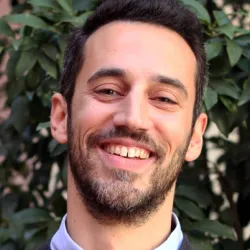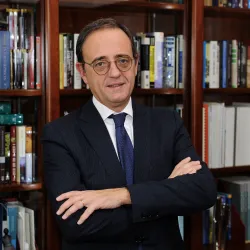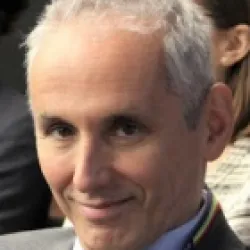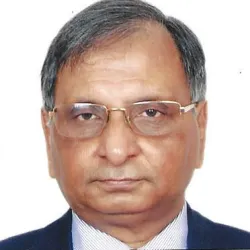Macro-prudential Policy: Implementing the Financial Stability Mandate 2022
Macro-prudential Policy: Implementing the Financial Stability Mandate
Macro-prudential Policy: Implementing the Financial Stability Mandate
March 14 – 17
Live Content sessions held : 8am–12pm (EST) | 1pm–5pm (GMT) | 9pm–1am (SGT)
Chair: Maria Nieto, senior advisor in the directorate of financial stability, regulation and resolution, Bank of Spain
What are the long-term impacts – and policy lessons – from the Covid-19 pandemic?
How can central banks, as the institution responsible for financial stability incorporate climate change into regular assessments and stress tests?
What are the systemic implications of CBDCs and stablecoins – and what are the priorities from a financial stability viewpoint?
For those charged with managing financial stability within central banks, these are just some of the major questions they are facing when addressing systemic risks in the global financial system. Increasingly, central bankers recognise the need not just to update toolkits but to overhaul frameworks.
This course is designed to equip central bankers to meet these challenges.
Each day will feature three hours of expert-led Live Content to maximise the opportunity to share and learn. The chair will ensure participants have opportunities to network throughout the course, with time set aside for a workshop on implementing key learnings.
Course agenda
Two weeks prior to your training course you will be emailed access to our content hub with course materials, including a trial to Central Banking if you are not already subscribed. There will be a combination of articles, reports and presentations that will contribute to two hours of preparation time for the live content. Presentations for the sessions will also be held here subject to the speaker approval.
Macro-prudential Policy: navigating a volatile landscape
13:00 – 13:30
Course introduction
Course introduction session led by the chair
13:00 - 13:30
- Introductions and welcome from the chairperson
- Overview of the training course
- Discussion of the delegate expectations
María J. Nieto (PhD) is a Visiting Senior Fellow at the London School of Economics (Grantham Research Institute), Member of EBI and former Senior Advisor at Bank of Spain. She is author of numerous peer-reviewed articles (Journal of Banking and Finance, Journal of Financial Stability, Journal of International Financial Markets, Institutions and Money among others). She has cooperated as advisor with the International Monetary Fund and the Federal Reserve Bank of Atlanta for over 10 years and she serves on the advisory boards of the Journal of Financial Regulation and Compliance, the Journal of Financial Regulation, the Central Banking Training Advisory Board (UK) and the Institute of International Monetary Economics (UK). She has a PhD from University Complutense de Madrid, an MBA in finance from the University of California, Los Angeles (UCLA), and is a Certified Public Accountant (CPA)
13:30 – 14:30
Macro-prudential policies: policy responses to Covid-19
13:30 - 14:30
- Tips for effective coordination and calibration of macro- and micro-prudential policy
- Implications for institutional arrangements and organisation
- Examples of mechanisms for a continuous exchange of information for conflict resolution
- Case study: macro- and micro-prudential supervision in a Covid-19 era
John Fell
Deputy director general, macro-prudential policy and financial stability
European Central Bank
John Fell is Deputy Director General for Macroprudential Policy & Financial Stability in the ECB. He is also the chair or co-chair of several international working groups - including the Eurosystem’s Macroprudential Policy Group (MPPG), the European Systemic Risk Board’s (ESRB) Instrument Working Group (IWG), and the ESRB’s task force on stress-testing. He is a member of the ECB’s Financial Stability Committee (FSC), the ESRB’s Advisory Technical Committee (ATC), and the Financial Stability Board’s Standing Committee on Assessing Vulnerabilities (SCAV). He led the stress-testing work for the ECB’s “comprehensive assessment” in 2014 as well as EU-wide banking sector stress-tests coordinated by the Committee of European Banking Supervisors (CEBS) (2009, 2010) and the European Banking Authority (EBA) (2011, 2014). His crisis management experience is extensive, including negotiating EU/IMF financial assistance programs in several euro area countries (e.g. in Ireland, Portugal and Spain). Between 2003 and 2010, he was Head of the ECB’s Financial Stability Division, spearheading the inaugural issue of the ECB’s Financial Stability Review in 2004 and directing it thereafter. Before moving to the financial stability area in 2003, he was an Adviser in the ECB’s Monetary Policy Directorate. Prior to joining the ECB in 1998, as a principal economist, he held various positions at the European Monetary Institute (EMI) and the Central Bank of Ireland. John holds postgraduate degrees in Economics (1987) and in Finance (1993) from University College Dublin and Dublin City University respectively, and is a PhD candidate at the Rotterdam School of Management, Erasmus University. He has published his research in several academic and policy journals.
14:30 – 14:45
Break
14:30 - 14:45
14:45 – 15:45
Climate risks as the new source of systemic instability
14:45 - 15:45
- Implications of climate change for the stability of financial systems
- Overview of key transition and physical risks
- The role of financial policy and regulation
- Climate scenario analysis for central banks and supervisors
Thomas Allen is a Research economist at the Banque de France. His research focuses on green finance, working on the development of metrics and modeling tools for climate and environment-related financial risk assessment. Thomas is assigned to the NGFS Secretariat (hosted at the Banque de France), where he was charge of the second workstream of the NGFS dedicated to Macrofinancial issues. He supported the WS2 Chair’s team in developing the NGFS reference scenarios for the first phase of work. He also helped coordinate the Banque de France/ACPR’s application of the NGFS scenarios for its pilot risk assessment exercise. Prior to joining the Banque de France, Thomas worked for the OECD, Bioversity International (CGIAR) and the French National Institute for Agronomic, Food and Environmental Research (INRAE).
15:45 – 16:15
Networking break
15:45 - 16:15
16:15 – 17:15
Stress testing
16:15 - 17:15
- Stress testing: taxonomy and key concepts
- Stress testing in the euro area, UK, and the US
- Stress testing: the way forward
- Climate change stress tests
Pedro Duarte Neves is Adviser for the Board of Directors of Banco de Portugal. He was Vice-Governor of Banco de Portugal from June 2006 to September 2017. Pedro Duarte Neves participated at the main high-level supervisory and regulatory fora like the EBA, SSM, ESRB, and FSB. He was Alternate Chairperson of the EBA from July 2013 to June 2018 and he has chaired a number of committees in the scope of the FSB, EBA, and the Joint Committee of the ESAs. His research interests include banking supervision and regulation, macro-prudential policy, and the real economy.
Pedro Duarte Neves is a Visiting Professor at Católica Lisbon School of Business and Economics. He is also Associate at the Systemic Risk Centre, London School of Economics. Pedro Duarte Neves holds a PhD in Economics from Université Catholique de Louvain. He published in scientific journals like The Journal of Econometrics, Economics Letters and Economic Modelling.
Building an effective framework against systemic risk
13:00 – 14:00
Formulation of macro-prudential policies: implementation and governance issues
13:00 - 14:00
- Key steps for the effective design of macro-prudential policy
- Ensuring effective use of policy tools and instruments
- Main operational and governance challenges, institutional limitations and how to overcome them
- Discussion: formulation, implementation, and governance of macro-prudential policy in the delegates’ jurisdictions
John Fell
Deputy director general, macro-prudential policy and financial stability
European Central Bank
John Fell is Deputy Director General for Macroprudential Policy & Financial Stability in the ECB. He is also the chair or co-chair of several international working groups - including the Eurosystem’s Macroprudential Policy Group (MPPG), the European Systemic Risk Board’s (ESRB) Instrument Working Group (IWG), and the ESRB’s task force on stress-testing. He is a member of the ECB’s Financial Stability Committee (FSC), the ESRB’s Advisory Technical Committee (ATC), and the Financial Stability Board’s Standing Committee on Assessing Vulnerabilities (SCAV). He led the stress-testing work for the ECB’s “comprehensive assessment” in 2014 as well as EU-wide banking sector stress-tests coordinated by the Committee of European Banking Supervisors (CEBS) (2009, 2010) and the European Banking Authority (EBA) (2011, 2014). His crisis management experience is extensive, including negotiating EU/IMF financial assistance programs in several euro area countries (e.g. in Ireland, Portugal and Spain). Between 2003 and 2010, he was Head of the ECB’s Financial Stability Division, spearheading the inaugural issue of the ECB’s Financial Stability Review in 2004 and directing it thereafter. Before moving to the financial stability area in 2003, he was an Adviser in the ECB’s Monetary Policy Directorate. Prior to joining the ECB in 1998, as a principal economist, he held various positions at the European Monetary Institute (EMI) and the Central Bank of Ireland. John holds postgraduate degrees in Economics (1987) and in Finance (1993) from University College Dublin and Dublin City University respectively, and is a PhD candidate at the Rotterdam School of Management, Erasmus University. He has published his research in several academic and policy journals.
14:00 – 14:15
Break
14:00 - 14:15
14:15 – 15:15
Basel IV – The Final Countdown
14:15 - 15:15
- Basel IV implementation: Overview of global progress and main challenges
- EU Banking Package 2021: Finalisation of the CRR 3 and CRD 6 legislative process
- Progress in other key jurisdictions: Focus on the new US Basel III endgame and UK Basel 3.1 proposals
- Expected impact across regions: Will Basel IV disadvantage EU banks versus their US or global counterparts?
Bozena Gulija
Financial regulation and risk management expert
Former Croatian National Bank and European Court of Auditors
Bozena Gulija is a financial sector professional with primary expertise in banking regulation and risk management, whose experience spans the private and public sector across several jurisdictions (EU, Netherlands, Belgium, Germany, Luxembourg and Croatia). She has worked for private companies including ABN AMRO, Euroclear, State Street, Nordea, and Intesa Sanpaolo Group, and public institutions such as the European Court of Auditors, the Croatian National Bank, and the Institute for International Relations. Bozena has been actively collaborating with several professional and academic institutions through lectures and research projects (e.g. Warwick University, Zagreb University, IADI-BIS, Central Banking, Risk.net) and as an author and reviewer (e.g. Financial Regulation International, IFLR - International Financial Law Journal, Journal of Banking Regulation).
Linkedin: https://www.linkedin.com/in/bozenagulija
15:15 – 15:30
Break
15:15 - 15:30
15:30 – 16:30
Making the most of big data and advanced analytics in macro-prudential analysis
13:00 - 14:00
- Big data
- Big data and central banks
- Opportunities & risks
- Applications to systemic risk
Stefano Borgioli is a Senior Team Lead - Economist-Statistician in the Monetary & Economic Statistics Division of the Directorate General Statistics of the European Central Bank (ECB). He joined the ECB in April 1999 after 3-year working experience as an economist in the Macro-Prudential Department of Banca d’Italia. He had temporary stints in both the Directorate General Macroprudential Policy & Financial Stability and the Directorate General Economics of the ECB.
He has worked extensively on banking statistics, statistics for macroprudential analysis and financial integration. He published in these areas and he frequently gives lectures at Universities (Politecnico di Milano, University of Florence, University of Frankurt).
Expanding the financial stability toolkit
13:00 – 14:00
Monetary policy and financial stability: longevity of ‘leaning against the wind'
13:00 - 14:00
- Key areas of interactions between financial stability and monetary policy
- Overview of dilemmas associated with ‘leaning against the wind’
- Implications for risk taking, credit and asset prices
- Discussion: how closely should decision on macro-prudential and monetary policy be integrated?
Karsten Gerdrup
Director, macroeconometric modelling - monetary policy and financial stability
Norges Bank
14:00 – 14:15
Break
14:00 - 14:15
14:15 – 15:15
Shadow banking and its role in the recent Covid-19 crisis
15:30 - 16:30
- Recent developments in shadow banking: some relevant statistics
- The role of shadow banking institutions during the Covid-19 crisis
- Is there a need to reassess the prudential regulatory approach?
Anand Sinha joined the Reserve Bank of India (RBI) in July 1976 and became deputy governor in January 2011. He was adviser in RBI up to April 2014 after demitting the office of deputy governor in RBI on January 18, 2014. As deputy governor, he was in charge of regulation of commercial banks, non-banking financial companies, urban cooperative banks and information technology, among others. He has represented the RBI in various Committees/Groups of the Bank for International Settlements (BIS), was on the G20 Working Group on Enhancing Sound Regulation & Strengthening Transparency and also a board member of the Securities and Exchange Board of India. He holds master’s degree in physics from the Indian Institute of Technology, New Delhi.
15:15 – 15:45
Networking break
15:15 - 15:45
15:45 – 16:45
Systemic stress-testing: new tools and frameworks: is Covid-19 prompting a reassessment?
15:45 - 16:45
- The evolving role of systemic stress-testing in financial stability assessment
- Building blocks of an effective stress testing framework
- Avenues for post-Corona stress-testing
- Discussion: is Covid-19 prompting a reassessment?
Jérôme Henry
Principal adviser, macroprudential policy and financial stability
European Central Bank
Jérôme Henry is the principal adviser in the European Central Bank (ECB) macroprudential policy and financial stability division. His responsibilities cover financial stability assessments and the related infrastructure requirements. Henry has led ECB teams for quality assurance of the single supervisory mechanism stress tests and was involved in country crisis management. He also worked at the Bank for International Settlements as a Financial Stability Institute fellow. Prior to this, Henry was a long-standing Eurosystem forecast co-ordinator. He started his time at the ECB leading the macromodelling team. Prior to his central bank career, Henry conducted research at the French Economic Observatory and the French National Institute of Statistics and Economic Studies. He is a founding member of the Centre for Economic Policy Research Euro Area Business Cycle Network. An Ensae Paris graduate, Henry holds a PhD in Economics and a bachelors degree in History from Paris Sorbonne.
Topical issues of financial stability
13:00 – 14:00
Understanding the dynamics of financial stability: Financial Sector Stability Assessments
14:15 - 15:15
- A comprehensive approach to financial stability
- Conceptual underpinnings of Financial Sector Assessment Program (FSAP)
- Case studies
Daniel C. Hardy is currently a Senior Research Associate at the Vienna Institute for International Economic Research, and a consultant on economic policy issues. He spent many years at the International Monetary Fund, leading work on macroeconomic and financial sector surveillance; Fund-supported programs; Fund policies; and technical assistance in a wide range of industrialized, emerging market, and developing countries. Most recently he was head of the Debt Capital Markets Division and led numerous FSAPs. He has also held positions at the Deutsche Bundesbank and the Austrian Financial Market Authority, and been an academic visitor at St. Antony’s College, Oxford, and the Vienna University of Economics and Business. His recent research has addressed topics in public sector governance; the functioning of the European Monetary Union and the Capital Market Union; and sovereign debt management. He studied at the universities of Oxford and Princeton.
14:00 – 14:15
Break
14:00 - 14:15
14:15 – 15:15
Financial stability and the evolution of global interest rates: the end of the low interest rate era?
14:15 - 15:15
- Causes of the secular decline in interest rates
- Stability implications
- Effects on emerging markets
- Recent and prospective interest rate movements
- Possible policy responses
Daniel C. Hardy is currently a Senior Research Associate at the Vienna Institute for International Economic Research, and a consultant on economic policy issues. He spent many years at the International Monetary Fund, leading work on macroeconomic and financial sector surveillance; Fund-supported programs; Fund policies; and technical assistance in a wide range of industrialized, emerging market, and developing countries. Most recently he was head of the Debt Capital Markets Division and led numerous FSAPs. He has also held positions at the Deutsche Bundesbank and the Austrian Financial Market Authority, and been an academic visitor at St. Antony’s College, Oxford, and the Vienna University of Economics and Business. His recent research has addressed topics in public sector governance; the functioning of the European Monetary Union and the Capital Market Union; and sovereign debt management. He studied at the universities of Oxford and Princeton.
15:15 – 15:30
Break
15:15 - 15:30
15:30 – 16:15
Closing remarks and delegate action plans
Concluding session led by the chair
15:30 - 16:15
- Summary of the course
- Discussion of the observed trends and case studies
- Application of learning points in the delegates’ home organisations
- Preparation of action points
María J. Nieto (PhD) is a Visiting Senior Fellow at the London School of Economics (Grantham Research Institute), Member of EBI and former Senior Advisor at Bank of Spain. She is author of numerous peer-reviewed articles (Journal of Banking and Finance, Journal of Financial Stability, Journal of International Financial Markets, Institutions and Money among others). She has cooperated as advisor with the International Monetary Fund and the Federal Reserve Bank of Atlanta for over 10 years and she serves on the advisory boards of the Journal of Financial Regulation and Compliance, the Journal of Financial Regulation, the Central Banking Training Advisory Board (UK) and the Institute of International Monetary Economics (UK). She has a PhD from University Complutense de Madrid, an MBA in finance from the University of California, Los Angeles (UCLA), and is a Certified Public Accountant (CPA)
Learning outcomes
At the conclusion of the training, participants will be able to:
- Evaluate their macro-prudential policies in the light of Covid-19
- Create scenario based stress testing for climate-related risks
- Understand how to measure macro-prudential instruments’ effectiveness
- Formulate an outlook for macro-prudential policy in the near-term
- Analyse emerging international standards and future policy initiatives
Chair

Maria Nieto
London School of Economics
Visiting senior fellow
María J. Nieto (PhD) is a Visiting Senior Fellow at the London School of Economics (Grantham Research Institute), Member of EBI and former Senior Advisor at Bank of Spain. She is author of numerous peer-reviewed articles (Journal of Banking and Finance, Journal of Financial Stability, Journal of International Financial Markets, Institutions and Money among others). She has cooperated as advisor with the International Monetary Fund and the Federal Reserve Bank of Atlanta for over 10 years and she serves on the advisory boards of the Journal of Financial Regulation and Compliance, the Journal of Financial Regulation, the Central Banking Training Advisory Board (UK) and the Institute of International Monetary Economics (UK). She has a PhD from University Complutense de Madrid, an MBA in finance from the University of California, Los Angeles (UCLA), and is a Certified Public Accountant (CPA)








